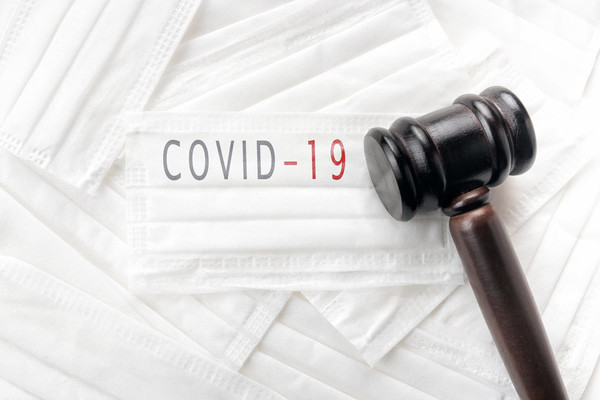
Each semester, Tonia Murphy routinely presents a hypothetical case study to her business law students to demonstrate the process of legal reasoning. It poses a fairly straightforward question: Should a student whose roommate has the flu be granted an extension on taking an exam?
Murphy, an accountancy teaching professor at the University of Notre Dame’s Mendoza College of Business, lays out two legal precedents that the court would consider in making a decision. And then she asks her students to vote — what do they think?
“Always before, the students voted no,” she said. “This year, though, the large majority said that was a good enough reason to grant the extension. It’s clear that COVID is going to cause lasting changes in attitudes toward what’s acceptable at work or school. I foresee permanent changes in attitude that will translate into changes in law.”
This thought had occurred to Murphy back in the spring when the coronavirus pandemic forced the shutdown of the Notre Dame campus in mid-March. She usually teaches three undergraduate sections of introductory business law at the Mendoza College of Business each semester, which adds up to about 140 students.
With just a week to manage the transition to online teaching, her first concern was to record all of her classes and prepare her online exams. She rushed to record six weeks of classes in just three weeks, fearing she would fall ill and not be able to teach. That, fortunately, didn’t happen.

“Then I wished for a project to occupy my quarantine days,” said Murphy. “I wanted to know more about these pandemic-related legal issues and thought my business law colleagues would have an interest, too.”
Her presentation based on this research, “Law in the Time of the Coronavirus: How and Why to Cover Coronavirus Disruptions in a Business Law or Legal Environment Course,” won the 2020 Charles M. Hewitt Master Teacher Competition. The competition, held by the Academy of Legal Studies in Business (ALSB) at its annual meeting, highlights the best classroom teaching, particularly the incorporation of “new or evolving course subject matter, cultural contexts, pedagogy, and technology.”
“Students will have natural interest in relating the virus that has upended their lives to their coursework,” wrote Murphy. “This presentation provides materials and specific suggestions for covering coronavirus-related issues throughout a business law or legal environment course — connected with such diverse topics as civil procedure, constitutional law, criminal law, intellectual property, contracts, consumer protection and corporate governance, among others.”
Murphy, who previously practiced law and now serves as a pre-law advisor to Mendoza students in addition to teaching, also wrote an academic paper on the topic which is scheduled for publication by the Journal of Business Law and Ethics Pedagogy this fall.
“The pandemic is having such an effect on our students’ lives. It’s top of mind for everybody, so to ignore the obvious connections with our course material would be a mistake,” she said. “Students are raising these issues in class. I’m glad to be prepared to address them.”
As in the flu example, Murphy’s aim in considering the legal implications of the COVID-19 was to identify the durable lessons — the substantive changes in attitudes and perspectives that are likely to lead to permanent changes in legal doctrine and corporate decision making.
“The paper is more than a collection of examples,” she said. “There are broad themes that run through this, including strategic questions for companies and how can they try to plan in advance for disruptions. When they enter into contracts, what kind of terms do they need to put in to cover themselves when something unexpected happens?”
For example, one major change Murphy expects to see pertains to the concept of “force majeure,” or more commonly the “Act of God” clause customarily used to excuse companies from meeting certain obligations when events beyond their control result in the failure to meet an obligation.
“It is not at all clear that a pandemic will be considered an act of God,” said Murphy. In the future, companies will likely write out a long list of possible disasters and disruptions rather than hoping to cover themselves with a generalized clause.
Ultimately, the presentation and the paper will provide students — and their professors—with the tools to discuss the implications of the pandemic and other unpredictable events in a reasoned way.
“The lawsuits are going to play out for years to come and at some point, students are going to look back on this time and assess the decisions that companies made,” she said. “Unexpected things are always going to happen. What we can teach our students is how to formalize scenario planning, draft better contracts and, above all, be adaptive.”